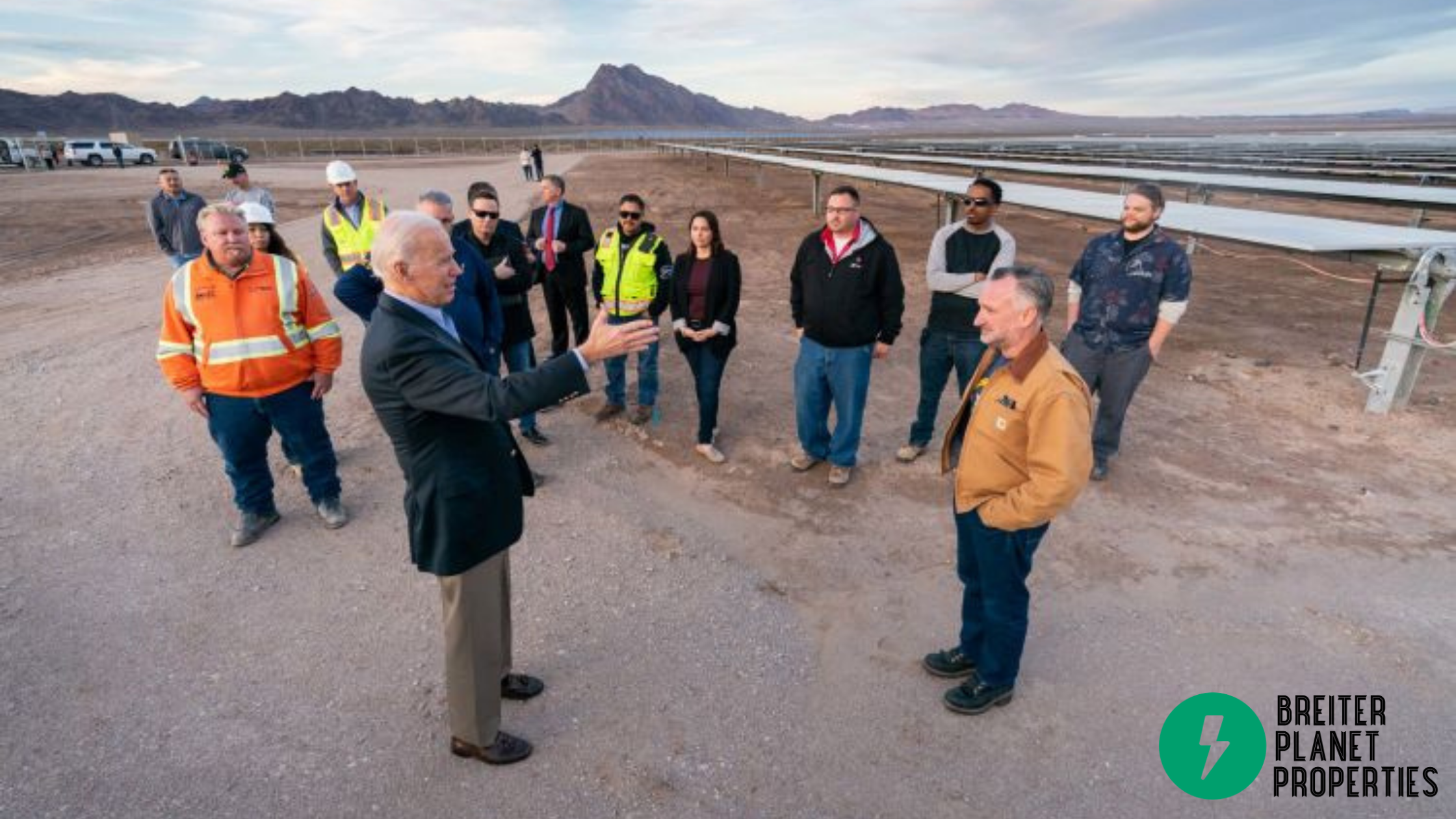
Image from: pv-tech.org
On Saturday, November 7th, it was announced that Joe Biden had won enough states to hit the required 270 electoral votes, to become the 46th President of the United States. His top day one priorities include “combatting the coronavirus pandemic, restoring a faltering economy, creating the conditions for greater racial equality, and taking on the “existential threat” of climate change.” ( GreenTechMedia )
Back in July, when Biden’s team initially presented their Energy and Infrastructure plan, we covered it here:
The Biden Administration plans on reversing executive orders made by the Trump administration that impeded our nation’s ability to combat climate change. That plan includes a pledge to take executive actions, such as rejoining the Paris Climate Agreement, reversing Trump administration actions that weakened automotive and appliance efficiency standards, and directing federal agencies to procure clean power from independent power producers (IPP) like Breiter Planet Properties. (GreenTechMedia)
The President Elect’s plan aims to make significant investments in infrastructure, the automotive industry, transit, the power sector, buildings, housing, innovation, agriculture and conservation, and Environmental Justice. Read more about the plan here: BuildBackBetter.com
Biden plans to completely decarbonize the power sector by 2035. The plan also calls for utilizing public lands for clean energy development and electrifying the fleet of federal vehicles once and for all. These goals will require aggressive investment and innovation in key clean energy technologies like energy storage, green hydrogen, and “safe” nuclear power. The cost of solar energy has been falling rapidly as technology advances and deployment increases.
As we move forward to a clean, more resilient, energy economy it is vital that we address and aim to assist communities that have been most directly and indirectly affected by climate change and pollution. Environmental justice is another key point in Biden’s climate plan: “Ensure that environmental justice is a key consideration in where, how, and with whom we build — creating good, union, middle-class jobs in communities left behind, righting wrongs in communities that bear the brunt of pollution, and lifting up the best ideas from across our great nation — rural, urban, and tribal.” (BuildBackBetter)
This plan sounds great on paper, but how much of it will actually happen? Critics of Biden’s climate plan question how things would play out if oil and natural gas suddenly become worthless. Kevin Hasset, from the National Review puts it this way: “Another way to think about the disruption associated with this plan is simply to quantify the value of the energy that Biden proposes taking offline. Proven fossil-fuel reserves in the U.S. are, we estimate, worth about $5 trillion. If you assume that the value of reserves left in the ground goes to zero immediately, you destroy $5 trillion in wealth.” (NationalReview) This article also argues that rendering oil fuels useless in the next five years would encourage extraction as quickly as possible, causing more pollution.
This is an intriguing argument, and more arguments like it will surely be made as Biden enacts his plans. Whether or not the Biden Administration will be able to enact legislative policy will rely on the results of two runoff elections in the Georgia Senate. Clean energy enthusiasts will be happy to hear that despite the results of these runoff elections, Biden can still enact executive actions that will support clean energy, limit pollution and protect wildlife.
Regardless of what side of the political spectrum people fall on, it is becoming more and more clear that clean energy has bipartisan support; “Support for renewable energy in the U.S. cuts across party lines, according to a new Yale University report. Three in four Republicans surveyed are in favor of increased funding for clean energy research, generating power on public lands and giving tax rebates for installing solar. Support was even higher among Democrats.” (Public News Service)
At Breiter Planet Properties we are excited by the prospect of greater federal funding and support of clean energy technologies. Whatever the outcome may be, we continue to develop, and invest in solar assets around the United States and across the globe. We are proud to contribute to the clean energy economy and look forward to doing so for the next 100+ years!
Visit our online store now to see how we can work together!
%20Transparent%20Background.png?width=320&height=132&name=Breiter%20Planet%20Logo%20(320%20x%20132%20px)%20Transparent%20Background.png)

